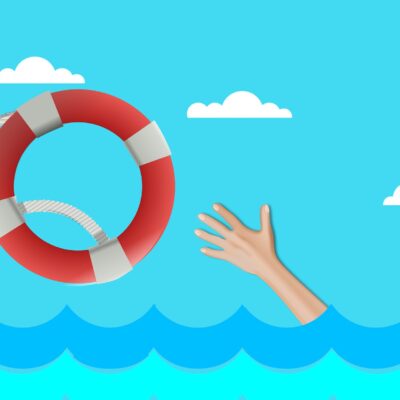How to insure the boat
How and where you swim determines the type of coverage required. All-risk insurance will provide the best protection. However, keep in mind that such a policy does not cover all types of losses. In insurance terms, all risks simply means that any risk not specifically excluded in the policy is covered. Typical exclusions include wear and tear, damage, dents, manufacturer defects, construction defects, freezing, etc.

Advertisement
You can also add additional sailboat insurance or any other type of boat. Options may include: medical benefits, personal effects, uninsured boater liability, and towing and assistance. Most policies cover equipment permanently integrated into the boat, as well as items such as anchors, oars, engines, tools, seat cushions and life jackets. Be sure to discuss these options with your agent.
Boat insurance cost factors and boat insurance policy
Many factors are used to determine the cost of a policy, and they vary from insurer to insurer. Here are some things to consider:
- – cruising: where you sail,
- – boating safety education: if you have been formally trained or certified,
- – injury-free usage: applies to both boating and driving,
- – liability limits: the higher the limit, the higher the cost,
- – deductible: the higher the deductible, the lower the premium,
If you are boating in a hurricane zone, your insurer may expect you to submit a hurricane plan. If a storm is approaching, will you store it in a hurricane-resistant facility or tow it or sail it to a safer port. The answer may affect or even lower your rates, but be prepared to follow your plan because your coverage may depend on it.
This will depend on the type of policy, as there are different types of boat insurance, but typical add-ons to insurance (in addition to the basic ones listed above) include:
- – consequential damage: covers loss due to wear and tear rather than accident e.g. rot, mould, corrosion,
- – towing: towing your boat across a body of water to safety can cost up to several hundred dollars per hour,
- – specialty insurance: insuring something specific on your boat, such as expensive navigation equipment.
It is best to have what is called an “All Risk” policy, which will provide coverage for all types of losses except those that are specifically excluded from the policy. Typical exclusions may include wear and tear, gradual degradation, damage, dents, scratches, animal damage, manufacturer defects, construction defects, and ice and freezing.
Advertisement
Insurance discounts
There are several ways to reduce the cost of boat insurance. For example, if your boating is limited by the seasons and your boat is stored during the winter, you may be able to get deductibles for winter downtime. Ask your insurance agent if they offer what is commonly referred to as a “lay-up” discount. You have year-round coverage with a discount for the months your boat is stored dry. Many insurers offer discounts for good driving records and for anyone who has completed boating training courses. Finally, insurance in fresh water usually costs less than in salt, so be sure to discuss with your agent where you sail. You can get additional savings by bundling your insurance with the same company that insures your home and/or car.
Insurance claims
We hope you never have to make a claim, but if you do, it’s good to be prepared. It’s a good idea to have your claim information on hand in case of an emergency. Ask your insurer how the claims process works. Of course, it should be quick and easy. Also, find out if a representative from your insurer will be available if you need help dealing with the aftermath of a claim, such as arranging a tow or rescue.
Where to get boat insurance
First and foremost, ask your boating friends what company they use. The way an insurer has handled claims in the past is a good indicator of the quality of service you can expect in the future. It is also a good idea to check the rankings of boat insurers. Remember, however, that the cheapest insurance does not mean the best. Verify first and foremost what the insurer offers in the basic package, as well as the cost of the additional options you need.
Advertisement
How much should I insure my boat for?
You should insure your boat for the amount it would cost you to replace it with the same quality. This is called “Agreed Value” insurance, and will cover the full sum insured in the event of a total loss. Beware of policies that provide “actual cash value” coverage (ACV), which means the value of your boat will be the replacement cost less depreciation.
Who can operate my boat
Most policies allow anyone to operate your boat as long as you give them permission. Of course, there are exceptions, especially for high-performance boats or jet skis, so always read your policy. But beware, too many extra helmsmen often result in higher premiums.
go4boats.com | 30.11.2022






